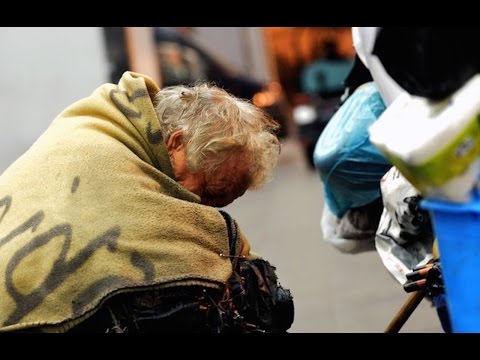There are no products in your shopping cart.
| 0 Items | £0.00 |


ITALY'S supreme court has ruled that it is not a crime to steal food to eat if you are hungry in a landmark ruling brought about by the rise in the number of people having to take desperate measure as the coronavirus lockdown hits hard.
One of the worst affected countries by the pandemic, Italy has been in lockdown since February, which has had a terrible effect on the country, especially in the poorer southern region. This has led to the rise in petty theft as hungry people resort to stealing food in a bid to survive.
In a landmark judgement this week, Italy's supreme court ruled that stealing small amounts of food to stave off hunger is not a crime. Judges overturned a theft conviction against Roman Ostriakov after he stole cheese and sausages worth €4.07 ($4.50) from a supermarket to keep body and soul together.
Mr Ostriakov, a homeless man of Ukrainian background, had taken the food in the face of the immediate and essential need for nourishment, the court of cassation decided. A fellow customer informed the store's security in 2011, when Mr Ostriakov attempted to leave a Genoa supermarket with two pieces of cheese and a packet of sausages in his pocket but paid only for breadsticks.
In 2015, Mr Ostriakov was convicted of theft and sentenced to six months in jail and a €100 fine. Deciding on the matter at a time when hunger is rife, the court of cassation's judges said they need to remind everyone that in a civilised country not even the worst of men should starve in times of economic hardship.
An opinion piece in Corriere Della Sera said statistics suggest 615 people are added to the ranks of the poor in Italy every day and it was unthinkable that the law should not take note of this reality. It criticised the fact that a case concerning the taking of goods worth under €5 went through three rounds in the courts before being thrown out.
Italy's Supreme Court of Cassation, which reviews only the application of the law and not the facts of the case, made a final and definitive ruling overturning Mr Ostriakov's conviction entirely. It ruled that stealing small quantities of food to satisfy a vital need did not constitute a crime.
"The condition of the defendant and the circumstances in which the seizure of merchandise took place prove that he took possession of that small amount of food in the face of an immediate and essential need for nourishment, acting therefore in a state of necessity," wrote the court.